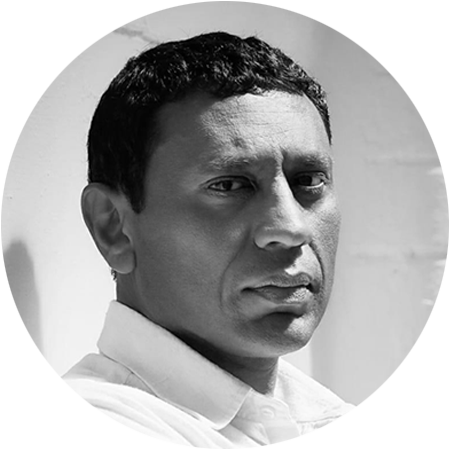The battle to diversify the video games business has been waged for decades. And the spiralling impact of the Black Lives Matter (BLM) movement has affected the games business just as it has other walks of life. Around the world, millions of voices are calling for fair treatment, inclusivity and respect.
People want to be treated equally, regardless of their complexion, gender, background, or sexuality. And although gaming has rocketed to new heights in terms of audience and social influence in the last decade, the business and development of games in the UK has remained the same: it is staffed and controlled largely by white men.
As conversations about race and equality continue to evolve, we spoke to experts in the games business to understand more about the sector’s diversity troubles and what companies can do to improve it.
We need to talk about racism and inclusivity

“The tragic death of George Floyd, which was broadcast across the globe, shocked people, including those who are not as aware of systemic racism,” says Adam Campbell, co-founder of POC in Play, an advocacy movement for people of colour in the games industry.
“It may have also been a surprise for non-black people particularly to see how this case in the United States had a deep, emotional impact on black people across the diaspora globally – myself included, due to personal experiences in the UK.”
Following these events, Campbell says POC in Play has seen a dramatic increase in traffic from the industry and consumers interested in how they can understand and address issues of inclusivity in games.

Kish Hirani, chair of BAME in Games, another group supporting ethnic diversity within the games industry, says he has also felt this change.
“Personally, my mailbox has been overwhelmed with organisations’ representatives wanting to do more,” he says. “This is positive. I have definitely seen a drive in the increase of larger studios setting up an internal minority group, and asking for tips on how to go about getting it right or just talking out loud to make sure they get it right.”This mobilisation is indeed positive, because figures show that the games business has a long way to go in many aspects of inclusivity and diversity.
According to the UKIE Games Industry Census - a joint project between industry trade body UKIE and the University of Sheffield - just 10% of the UK workforce are black and minority ethnic (BAME) people.
While that figure is slightly higher than that of the national working population, as well as higher than both the overall creative industries and specific sectors, such as music, publishing, and film/TV, it is slim nonetheless.
Staff from outside the UK account for 28% of the workforce, and among this group 40% are ethnic minorities. And though the sample size was small, it indicated that the number of female ethnic minorities was slightly higher at 35% than the UK industry’s overall gender ratio (which is 70% male, 28% female, and 2% identifying as non-binary or another gender).

Reflecting on recent events, UKIE CEO Dr Jo Twist says: “Racism is absolutely unacceptable and must be stamped out in our industry and society at large. But as Black Lives Matters has shown, it’s not just about combatting visible abuses; it’s about fighting institutional and unconscious biases and barriers that hold people back from achieving what they can.
“We know the games industry needs to do more on this. The census showed that too few black people work in games compared to the national working age average and that this worsens in leadership roles. We need, therefore, to make sure that we do more to solve these problems as directly as possible through the work we collectively do.”
Nurturing talent from juniors to seniors
The lack of non-white staff in senior or decision-making roles is hardly unique to games. But Hirani says the industry’s competitive nature has made it especially difficult for BAME individuals to forge long-lasting careers.
“Anecdotally speaking, I have been made redundant four times in my 24 years in the industry,” he says. “It would have been very easy to move away from the industry in my earlier days for more job security in some well-established, traditional tech company. I certainly see this as a major contributing factor in not having as many senior roles amongst the minorities.”
He points out that, based on the 2020 census, only 31% indicated that they have worked more than 10 years in the industry, and 50% make up the 26-35 years age bracket, with only 3% above 51 years old.
With this in mind, Campbell added that improving hiring practices is important: “Cast your net as widely as possible. Engage people or platforms that can reach marginalised groups when advertising jobs to ensure you get a range of candidates. Avoid leaning on ‘cultural fit’ or other measures than can potentially exclude candidates with different backgrounds or ideas. And consider unconscious bias training for hiring managers, where possible.”

Emma Smith is head of talent at The Creative Assembly, one of the UK’s oldest games studios and developer of the award-winning Total War strategy franchise. Smith leads the studio’s outreach programme, called The Legacy Project, which seeks to give people from all backgrounds and skillsets the opportunity to get involved in the games industry.
“Speaking from a privileged position, I can’t claim to understand the complexity of the issues faced by black people,” she says. “But I absolutely want to learn and to see how I can enact change in my daily life.
“We know there is a lack of diversity in the games industry, and we want to do our part to address that. That’s why, as part of The Legacy Project, we work with organisations, such as Women in Games, Pixelles, and the East London Academy of Music and Arts. In fact, over a quarter of students at the ELAMA are from disadvantaged backgrounds and over 70% are from black and ethnic minority backgrounds. We want to help address any barriers that exist to them entering the games industry.”
Supporting women and girls
Another barrier to address is the games sector’s long and troubled relationship with its representation and inclusivity of women. According to UKIE’s census, women make up just over a quarter of the UK games workforce. But this number could be in danger of shrinking unless action is taken to ensure women feel safe and welcome.
Meanwhile, the industry also has work to do if it is to attract the next generation of female developers. Recent studies have shown that while women are 36% more likely to go to university, the proportion of women studying subjects such as computer science or games programming is low. According to STEM Women, only 35% of UK students studying core STEM subjects at university are women.
Dr Richard Wilson, CEO of trade association TIGA, says: “We need to ensure that girls and women have equal opportunities to study STEM subjects, pursue STEM careers, and achieve senior STEM roles. Encouraging more women into tech is crucial to ensure there is a diverse talent pool.”
In addition, recent stories about harassment and misconduct by some senior male staff members at major games studios has painted a disappointing picture of how women have been treated in the industry.

Harinder Sangha is operations director at Sumo Digital, one of the UK’s largest games development groups, making and contributing to LittleBigPlanet, Forza and other popular franchises. She is one of the few women in a senior role in the games industry. And she wants to change that.
“I believe I’m a strong, confident woman and the best way to challenge adversity is to face it head on,” says Sangha.
“BLM made me think about how my career has progressed and if things would be different for me if my circumstances had been different. But the overriding emotion I have is the need for change. I’m determined to make this industry accessible and attractive to young girls who right now may not even consider this as a career possibility for them.”
Improving diversity in the games industry
Changing representation in the games industry long-term will require continued discussion and action. For the moment, advocates agree more must be done to attract and, crucially, nurture BAME people, women, LGBTQ+ individuals, and other marginalised groups, in the shared movement towards a fair society for all.
“Attracting more ethnic minority talent to join the industry is the key to improving the representation and eventually having them stay long enough to be in senior positions,” says Hirani.
Following its census, UKIE announced its #RaiseTheGame pledge to improve diversity and inclusion in the industry. The principles of the pledge are to hire more widely, demonstrate diversity, and create a safe and welcoming work environment and develop truly representative games.
It hopes to sign up 200 UK games businesses, covering 50% of the country’s games workforce by 2021. EA, Facebook, Jagex, King, and Xbox were the first to sign up, and they have since been joined by other companies in the sector, both large and small.
Dr Twist says: “We’re encouraging businesses to join the industry’s #RaiseTheGame pledge as a way of improving and maintaining diversity in the sector for the long term. There is a strong community building around it that is successfully sharing best practice and nurturing a shared sense of responsibility – we can only learn by listening to others.
“But let’s also not underestimate the importance of role models, as well as profiling and supporting diverse talent across our sector. There is much work to be done and this road is a difficult one, but it is only the right thing to do.”
In Sangha’s view, change starts right at the beginning: “Programmes like the Digital Schoolhouse and the Ahead Partnership gives kids from all sorts of backgrounds an insight into how exciting and creative programming can be.
“We have to compete for the brightest and the best, and we’re not going to attract very bright kids of colour if they don’t see people like themselves at every level of our industry. Education and a real examination on how we recruit – widening the pool, going beyond our existing networks, constantly striving to bring new people from different cultures into our industry. That’s what we have to do.”
It’s impossible to know whether the energy sparked by the BLM movement will be maintained in the months and years to come. But there are those in the games business offering ideas, initiatives and action in the ongoing fight for equality.
Sangha concludes: “Jo Twist once said that ‘diversity isn’t a nicety, it’s a necessity’. The games we make will be stronger through diversity and surely that’s what we all want?”
Barclays (including its employees, Directors and agents) accepts no responsibility and shall have no liability in contract, tort or otherwise to any person in connection with this content or the use of or reliance on any information or data set out in this content unless it expressly agrees otherwise in writing. It does not constitute an offer to sell or buy any security, investment, financial product or service and does not constitute investment, professional, legal or tax advice, or a recommendation with respect to any securities or financial instruments.
The information, statements and opinions contained in this content are of a general nature only and do not take into account your individual circumstances including any laws, policies, procedures or practices you, or your employer or businesses may have or be subject to. Although the statements of fact on this page have been obtained from and are based upon sources that Barclays believes to be reliable, Barclays does not guarantee their accuracy or completeness.
